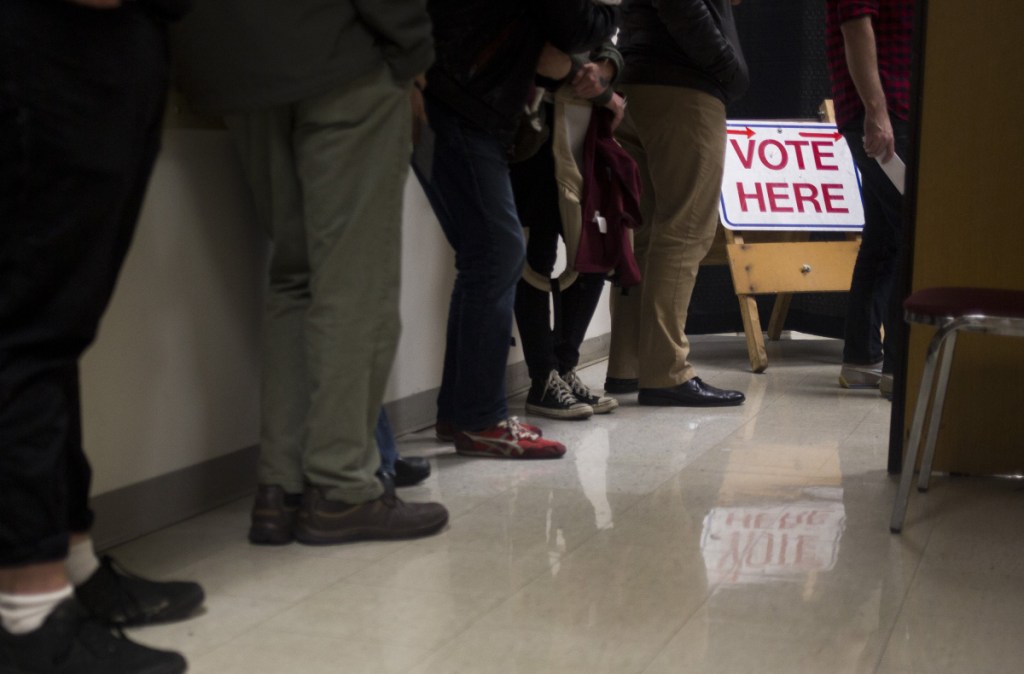The gavel has come down. A Maine Superior Court justice has said what was obvious to the rest of us: Ranked-choice voting is the law of the state of Maine and must be used in the June 12 primaries.
That’s what 388,000 Mainers expressed when they voted for ranked-choice voting in 2016. It’s what another 80,000 voters thought when they signed petitions for a people’s veto to block an attempt by their elected leaders to repeal the voter-approved law.
Ranked-choice voting is the people-approved, court-certified method to conduct Maine’s upcoming primaries. Opponents of the reform must stop trying to undermine free and fair elections – past, present or future.
Ranked-choice voting is the voting process that requires a candidate to earn a majority of votes in order to win. In races with more than two candidates, ranked-choice voting gives voters the option to rank their choices – first choice, second choice and so on. Ballots are counted in rounds in which last-place candidates are defeated until one candidate reaches a majority and wins. If a voter’s first-choice candidate is eliminated at any point, their vote automatically counts for their second choice.
Because the winner in the final round is the one who attracts a majority coalition, successful candidates need to appeal to a wider audience. This reduces the incentive for negative campaigning. Ranked-choice voting encourages candidates who are uniters, not dividers.
Sometimes lost in today’s political discourse are Maine’s independent voters, the largest single voting group in the state. These moderate voices are precisely the ones needed for the daily blocking and tackling of government. Ranked-choice voting arguably gives these voters greater influence.
That’s important. Perpetual gridlock is our modern political challenge. We should not be surprised by the number of times citizens have taken matters into their own hands to exercise their constitutional right to make law through the citizen initiative process – the origin of ranked-choice voting. Maine citizens have been making more policy decisions at the ballot box because their elected leaders have been stuck in hyper-partisanship, rather than coming to the table and moving forward.
Ranked-choice voting tends to temper the divisiveness of partisanship and elect people who are more interested in solving problems than picking partisan fights.
June 12 will be the first time that ranked-choice voting has been used in a statewide election – an election to which all registered voters are invited, independent and party voters alike.
At that same time, a people’s veto extending the use of ranked-choice voting into future elections will be on the ballot. It will be Question 1.
A vote of “no” means more of the same partisanship and gridlock just the way they are.
A vote of “yes” on statewide Question 1 means more opportunity for all voices to heard, using ranked-choice voting.
Send questions/comments to the editors.



Success. Please wait for the page to reload. If the page does not reload within 5 seconds, please refresh the page.
Enter your email and password to access comments.
Hi, to comment on stories you must . This profile is in addition to your subscription and website login.
Already have a commenting profile? .
Invalid username/password.
Please check your email to confirm and complete your registration.
Only subscribers are eligible to post comments. Please subscribe or login first for digital access. Here’s why.
Use the form below to reset your password. When you've submitted your account email, we will send an email with a reset code.